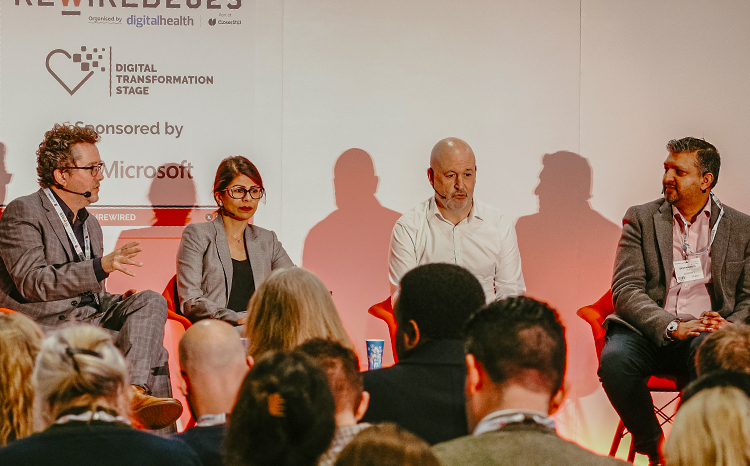‘Late and incomplete’ definitions from NHS stifling interoperability
- 3 October 2019

Late and incomplete standards definitions from NHS bodies are stifling the progress of interoperability in health IT, INTEROPen’s vendor co-chair has said.
David Hancock told delegates at HETT on 1 October that interoperability in healthcare was “nowhere near” where it needed to be, highlighting slow progress of programmes of work from NHS Digital and NHS England.
He argued that it was up to all stakeholders involved in the healthcare ecosystem – from national bodies to vendors and standards bodies – to drive the creation of open standards, adding that the NHS “can’t control everything in the standards development process.”
Hancock added: “Matthew Gould and Matthew Hancock say interoperability is the biggest problem, and we still have some fairly proprietary interoperability.
“We’ve had slow coverage and implementation, we’ve had some fairly late and incomplete standards definitions – the Care Connect call is not finished, there’s a general lack of interoperability and I think we’ll all agree with that.
“We still haven’t got transfers of care and GP Connect really implemented, and yet we’ve been talking about that for – how many years? It’s been mandated for how many years?”
Hancock also highlighted the difficulty in convincing organisations to move away from their own proprietary standards in favour of open APIs – specifically with the Fast Healthcare Interoperability Resources (FHIR) data standard.
“The complexity around it is enormous,” he explained.
“In order to get it to work, you’ve got to try to get organisations that you have no control over to change the way they work, which will cost them money, and they’ll get no benefit because it’s the receiving organisation of the information that gets the benefit.
“How do you make that work? It’s only by everybody who has, and shares, the problem working together to solve it. This cannot really be done from the top-down.”
Joining David Hancock on stage was Ben McAlistair, Cerner’s vendor board representative for INTEROPen and HL7 chair.
While FHIR APIs are seeing increased adoption amongst suppliers – particularly within shared record initiatives, McAlistair acknowledged that it “is never going to please everybody.”
He added: “FHIR is an emerging standard. There are some breaking changes that are still going on until it gets to it gets to a normalise state.
“FHIR is a pragmatic standard. It’s never going to please everybody but it’s about finding a middle ground that works for everyone, and it’s a rough consensus and ready examples that keep things moving.”
Read more:
- INTEROPen turns to members for funding as NHS Digital pulls back
- NHS needs to be ‘slim and simple’ to allow innovation, Donnelly says
- NHSX ‘must not grow an empire at the centre’, says Gould






2 Comments
I hate to praise anybody in this government, but Hancock is right. The NHS IT managers, the software suppliers and the doH have been at sixes and sevens on interoperability standards for the last 20 years. They need their silly heads knocking together.
My experience as a patient with multiple co-morbidities, being treated by several hospitals over the last ten months also shows me also that even when there are standards, hospitals fail to use them, and plough on doing their own thing. The will to cooperate among hospitals, GPs, et al, still does not exist.
Perhaps if the various iterations of NHS central IT over the last 20 years had spent more on helping implement any of the standards it developed rather than continually moving to the next “big thing” there could have been significant progress (HL7 v3, CDA, FHIR all do the same thing).
And reading elsewhere on digitalhealth today about NHS Wales: “Alongside £50 million in fresh funding, the new standalone organisation will appoint a chief digital officer who will help define national standards for Wales’s digital health services.” at least the NHS in England is in good company focusing on changing standards rather than implementing them.
And can anyone explain why it is a good use of taxpayer’s money for England, Scotland and Wales all to be doing their own thing?
Comments are closed.